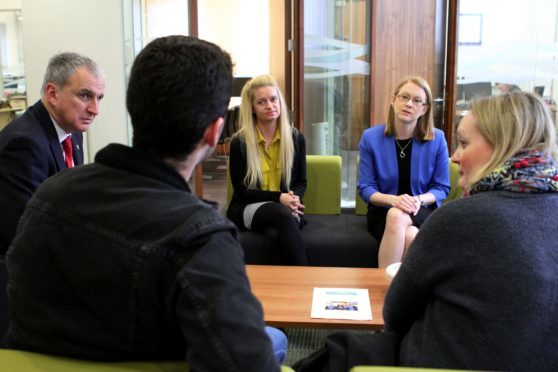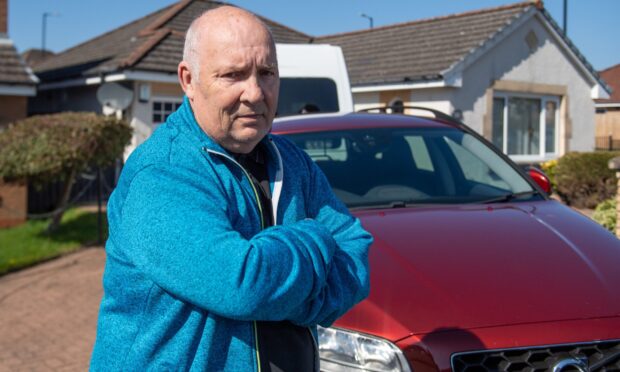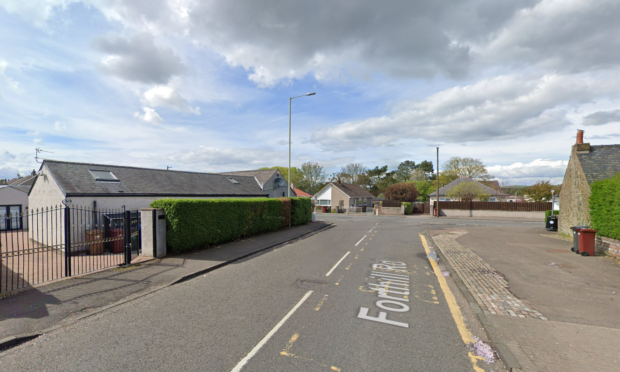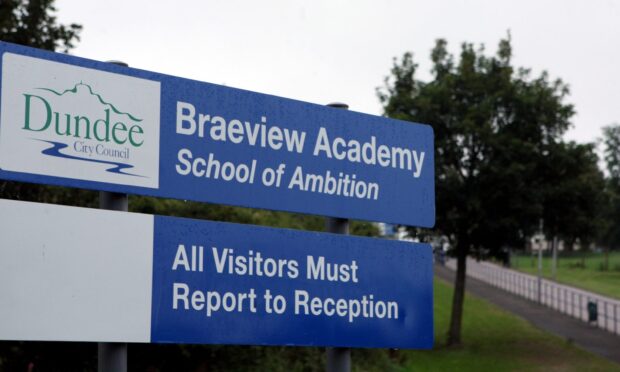Abertay University has been hailed after becoming the first Scottish university to lower its admissions requirements for those from disadvantaged backgrounds.
The university is the first in Scotland to implement a new system following concern students from disadvantaged backgrounds are less likely to gain grades as high as those from upper and middle class backgrounds.
The Scottish government wants 20% of students to come from the country’s most disadvantaged areas by 2030 with a series of recommendations in place to help achieve this.
The system will focus on more than just exam results with an individual’s personal experience, upbringing, skills and potential taken into account too.
Students accepted onto courses through the new system will be defined as “contextualised admissions”, meaning they will normally only need exam marks which meet a certain threshold.
On a visit to the university on Wednesday, the Scottish Government’s higher education minister Shirley-Anne Somerville described the new policy as “very impressive”.
She said: “I want to congratulate the university on the fantastic work that they are doing to ensure that students from all backgrounds know that university is an option for them.
“It’s very impressive to see how seriously Abertay have taken this issue. There are lessons here for universities from across the country.
“The speed with which the university has introduced access thresholds is to be commended.”
Professor Nigel Seaton, principal of Abertay University, said it was important to stress the university was not admitting students who are “less able” than others.
He said: “We are very proud at Abertay of what we do to support students from disadvantaged backgrounds.
“An important part of this is admissions, where we assess the background and if they are disadvantaged then we allow them entry to the university on a much lower entrance qualification. We’re not admitting students who are less able.
“We are admitting some students who are equally able and just find it a bit harder to demonstrate that through conventional exams.”
33-year-old Cheryl Torano, who grew up in care, graduated from the university with a degree in Ethical Hacking after being accepted onto the course via a “contextual” offer.
She said she was fully supportive of the effort to widen access but admitted it made her feel as though she had been “put in a box”.
She said: “I did get the grades required but it was it was my contextual that got me in I think.
“I’m glad I didn’t find out until after I graduated because I think it would have knocked my confidence a bit if I’d known that I’d been put in a box before I’d actually arrived.
“I didn’t know about it though so it didn’t affect me at all.
“Because of the way Abertay do it, nobody else gets to know about it, not even the lecturers.
“It’s a really good thing. There’s a lot of kids out there that think university is never for me but if they apply then there’s a good chance they’ll get in and I’m proof of that.”










